Stephen Hawking
via Financial Times
Anyone, anywhere in the world should have free, unhindered access to not just my research, but to the research of every great and enquiring mind across the spectrum of human understanding."
Happy birthday Professor Stephen Hawking! The cosmic superhero never ceased to amaze his admirers. I am one of his admirer!
- Google Doodle:
Today, 8 January, Google released a Doodle celebrating what would have been Stephen Hawking’s 80th birthday. One of history’s most influential scientific minds, English cosmologist, author, and theoretical physicist.
From colliding black holes to the Big Bang, his theories on the origins and mechanics of the universe revolutionized modern physics while his best-selling books made the field widely accessible to millions of readers worldwide.
Google worked with his family to create a video Doodle that gives us a condensed version of his life. Moreover, the tech giant used Hawking's famous computer-generated voice to narrate his work and experiences from the time he graduated.
The two and a half minute-long video gone live in the US at midnight ET 8 January (9pm PT) and includes a narration in the physicist’s own computer-generated voice (created and used with permission from his estate) outlining his work and painting a message of hope for the future.
- Some biographical facts:
As we know, Stephen William Hawking was born on this day in 1942 in Oxford, England. Fascinated by how the universe functioned from a young age, his curiosity and intellect earned him the nickname “Einstein.”
Following a diagnosis with a neurodegenerative disease at 21, the music of composer Richard Wagner and the loving support of his future wife Jane Wilde motivated Hawking to dedicate himself to physics, math, and cosmology.
In 1965, Hawking defended his doctoral thesis at the University of Cambridge, Properties of Expanding Universes, which presented the revolutionary theory that space and time originated from a singularity, a point both infinitely small and dense, best known today as the key characteristic of black holes.
Stephen Hawking
credit: David Montgomery/ Getty Images
That year, Hawking was accepted as a research fellow at Cambridge’s Gonville and Caius College - his academic home for a lifetime of research. Hawking’s obsession with black holes led to his 1974 discovery that particles could escape black holes. This theory, coined Hawking radiation, is widely considered his most important contribution to physics.
In 1979, Hawking’s groundbreaking work on black holes prompted Cambridge to appoint him as the Lucasian Professor of Mathematics, a position held by Isaac Newton in 1669. Hawking’s doctoral thesis was released to the public in 2017 on a University of Cambridge website, which crashed due to enormous amounts of traffic.
In 1988 Hawking catapulted to international prominence with the publication of A Brief History of Time. The short, informative book became an account of cosmology for the masses and offered an overview of space and time, the existence of God and the future.
The work was an instant success, spending more than four years atop the London Sunday Times' best-seller list. Since its publication, it has sold millions of copies worldwide and been translated into more than 40 languages.
The scientific icon and cultural figure made tremendous contributions to physics and cosmology, deepening and expanding our understanding of the universe, and the lifecycle of black holes.
He also made grave warnings about the future of the planet.
In recent years, Hawking has implored humanity to keep thinking about the long-term future of our species. He has expressed grave concern about climate change and whether we should consider the advent of artificial intelligence (AR) as a threat to humanity.
He has said colonizing other planets will be essential for our long-term survival.
“We are running out of space and the only places to go to are other worlds,”
Stephen Hawking
- Infographics
- Google Arts & Culture


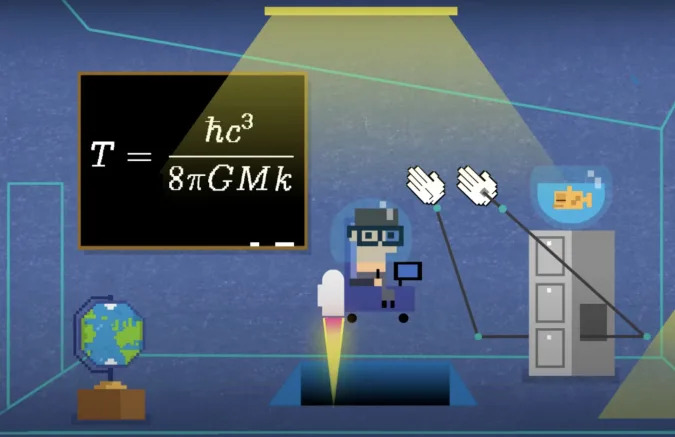


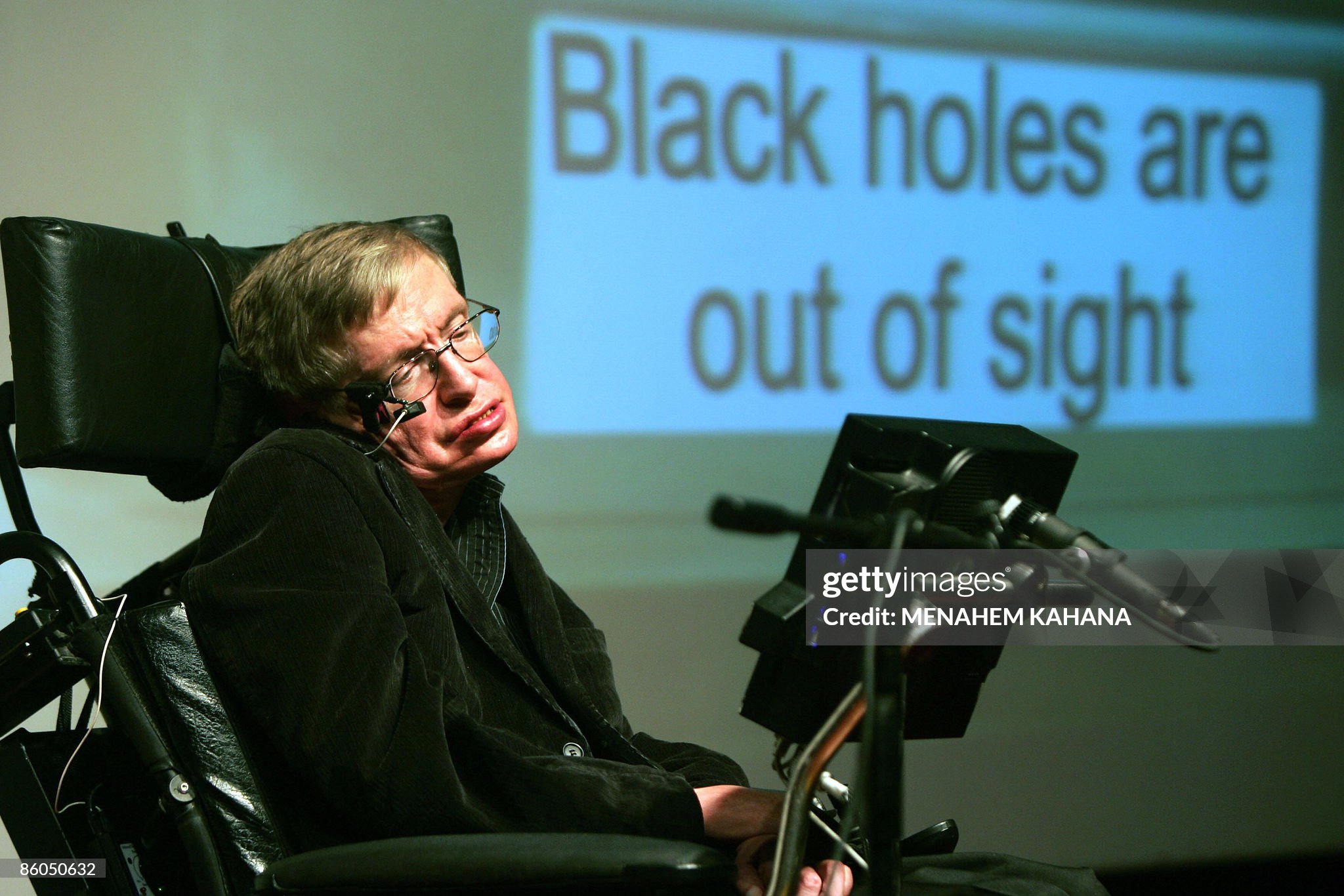
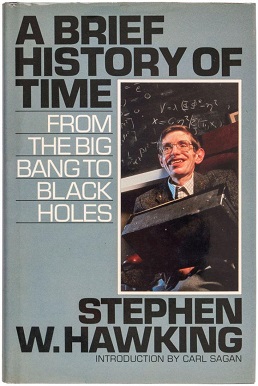
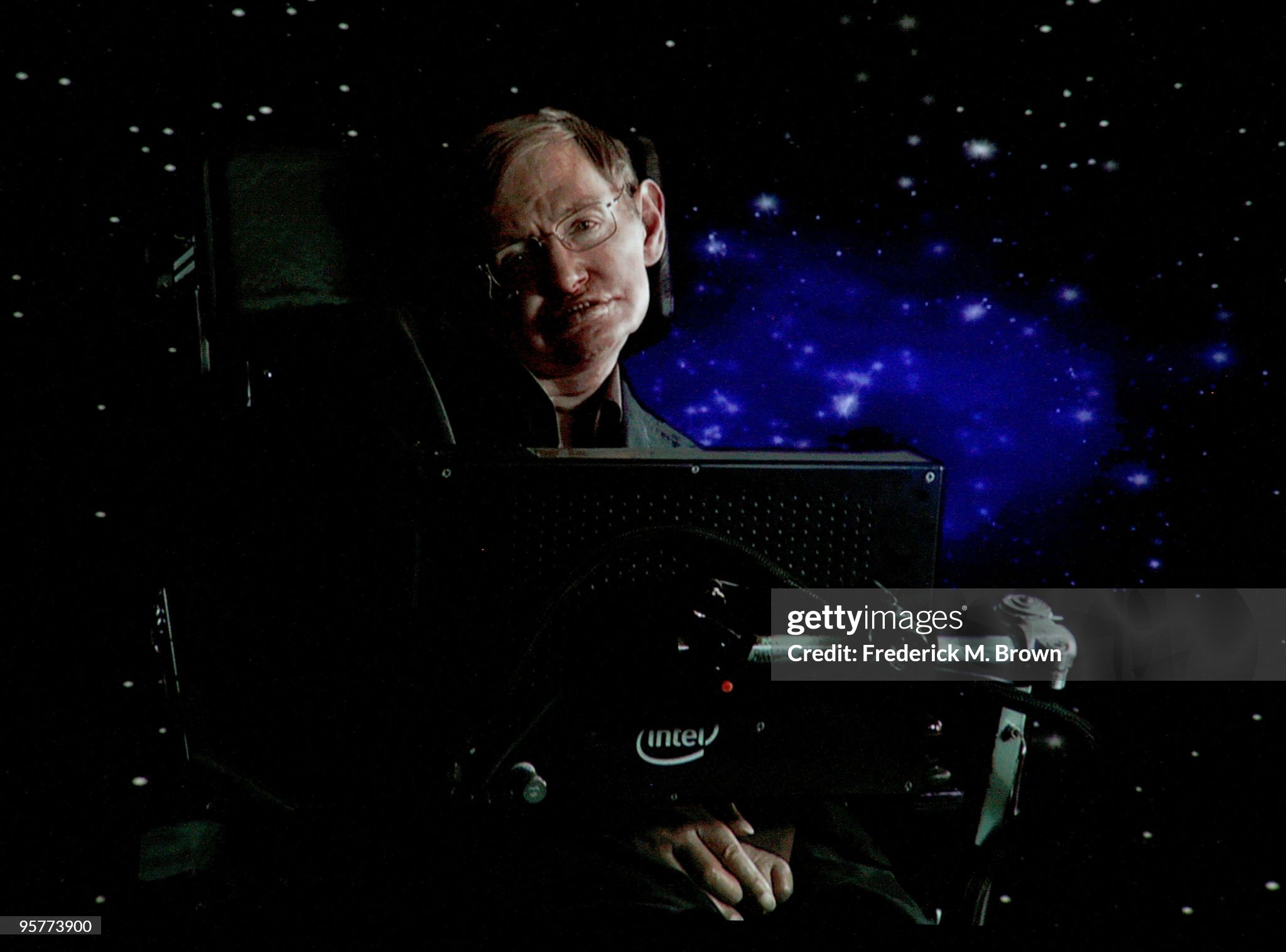
:format(webp)/cdn.vox-cdn.com/uploads/chorus_image/image/55350127/GettyImages_520676736.0.jpg)

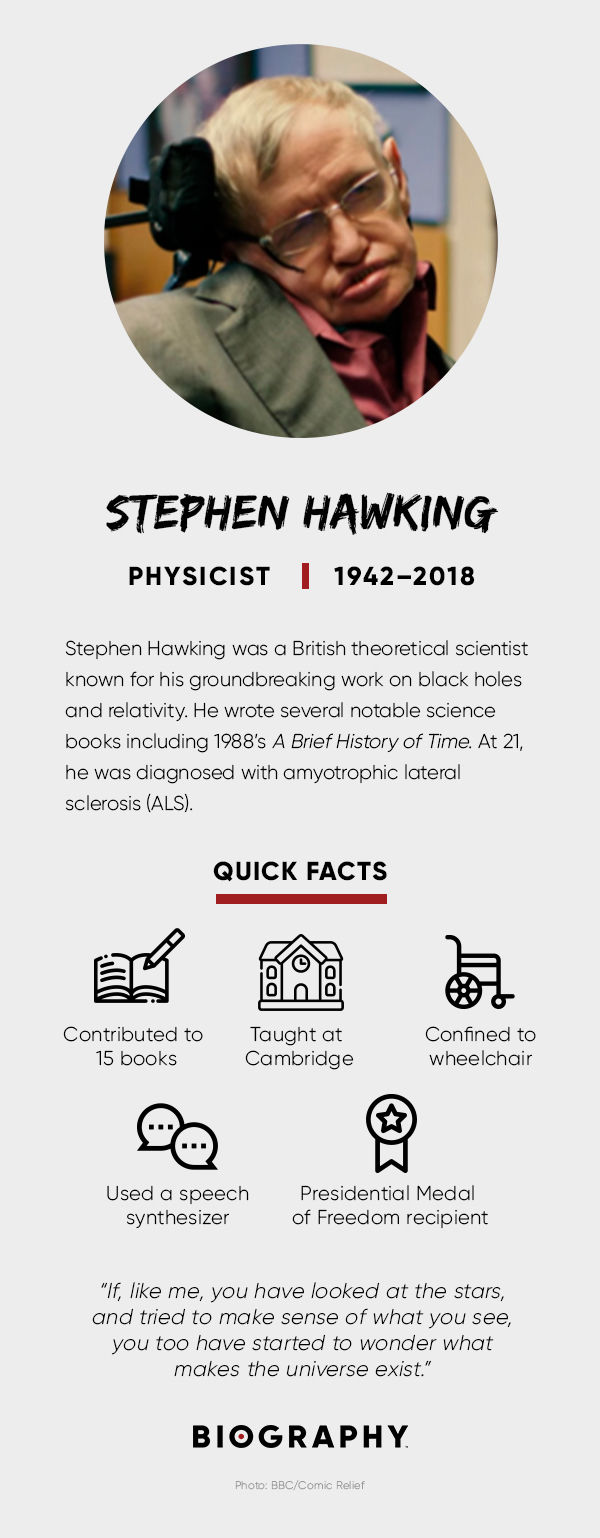
No comments:
Post a Comment